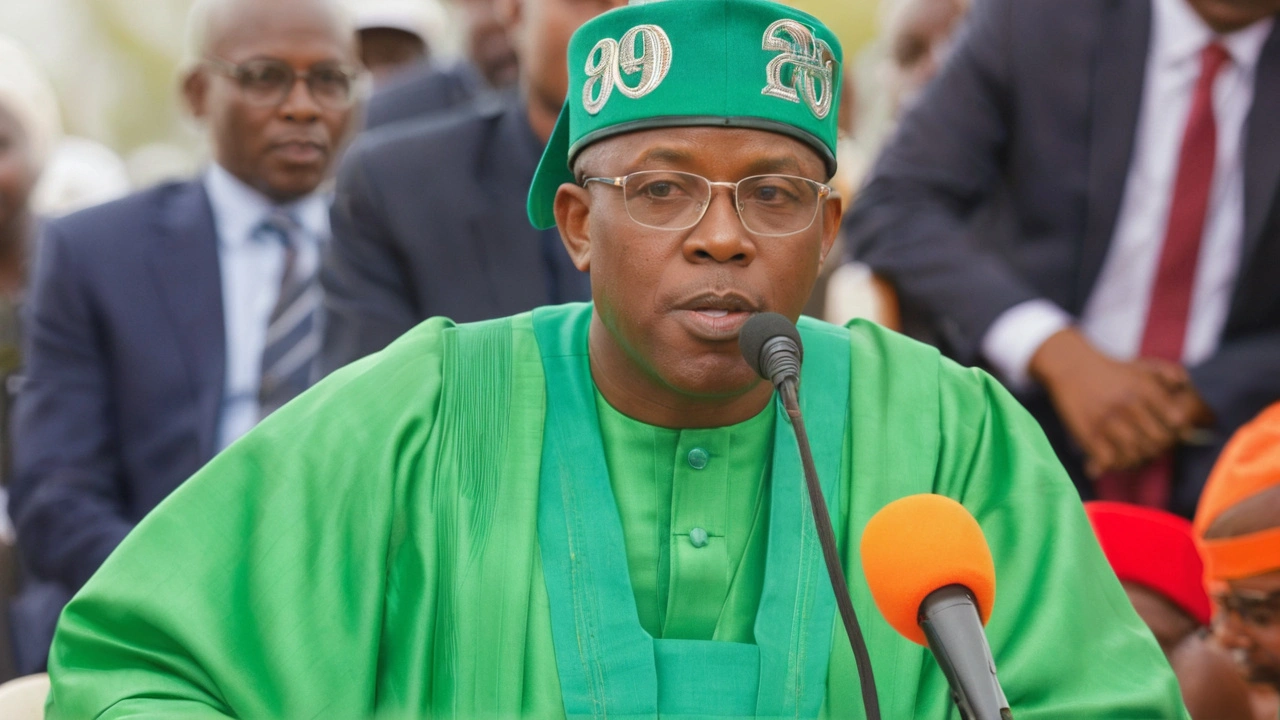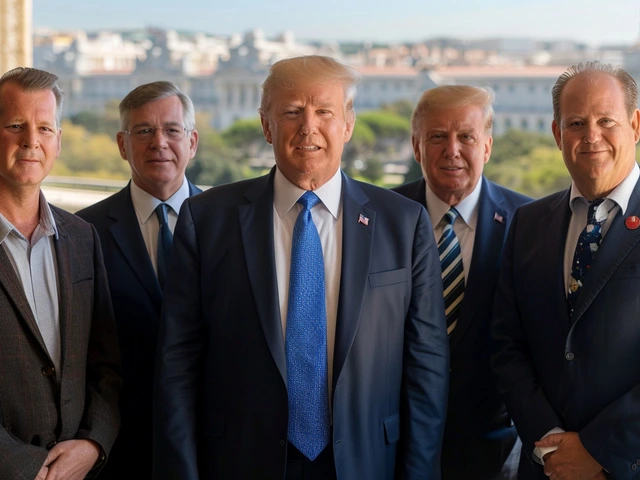President Tinubu's New Appointments for Federal Colleges of Education
In a significant move aimed at bolstering educational standards, President Bola Tinubu has approved the appointment of governing councils for six federal colleges of education. These institutions, located in Kebbi, Benue, Edo, Ebonyi, Bauchi, and Sokoto states, serve as pivotal centers for teacher training and educational development. The appointments were publicized through a statement signed by Tinubu's Special Adviser on Media and Publicity, Ajuri Ngelale, signaling a committed effort towards elevating the educational landscape of Nigeria.
Detailed Appointments and Their Expected Impact
The Federal College of Education (Technical) in Yauri, Kebbi State, will now be chaired by Ismaila Gadaka. He will be joined by Abdulhakeem Adegoke, Pam Ishaya, Abubakar Fakai, and Zara Usman as members. This council is expected to leverage their diverse expertise to foster an environment conducive to technical education, thereby preparing students to meet the demands of modern technology-driven industries.
Mohammed Takori has been named the Chairman of the Federal College of Education (Technical) in Isu, Ebonyi State. Serving alongside Takori will be council members Dauda Onipede, Victor Danzaria, Solomon Ayuba, and Mario Owumi. This team brings a wealth of experience that will be invaluable in addressing the unique challenges faced by the institution, particularly in rural education and technical skills training.
Over in Benue State, Baba Alphonsus Homsuk will chair the Federal College of Education, Odugbo. Members Kayode Ajiboye, Rex Ogbonna, Jude Ngaji, and John Viko will support him. The council in Benue is expected to focus on promoting inclusive education practices and ensuring that teacher training programs are aligned with contemporary educational methodologies.
Aisha Yelwa Ibrahim Tahir will lead the Federal College of Education in Jama'are, Bauchi State. Council members Dorren Udechukwu, Bar Yaji, Mustapha Shehu, and Joshua Adewale will join her. The Bauchi council's mandate will likely include enhancing teacher preparedness and developing robust educational curricula that cater to the region's socio-economic needs.
In Sokoto State, Abdullahi Adamu has been appointed to chair the Federal College of Education in Gidan Madi. His team includes Olatunji Akinbiyi, Mohammed Malala, Saleh Audu, and Lami Oguogho. This council will address the educational gaps in Sokoto, focusing on primary and secondary teacher training programs that aim to uplift the state's overall literacy rates.
Tukur Jikamshi will chair the Federal College of Education (Technical) in Benin City, Edo State. Joining him as members are Abdullahi Loko, Asimiyu Alarape, Abubakar Bello, and Christopher Okaeben. This council has the crucial task of driving innovation in technical education and ensuring that the institution remains a leader in producing competent technical educators.
President Tinubu's Vision for Education
President Tinubu's administration has emphasized the importance of education in national development. By appointing these new governing councils, the President is taking a step towards fulfilling his vision of transforming the educational sector. He anticipates that the newly appointed members will serve with dedication and commitment, enhancing the standards of learning and ensuring that students across these colleges receive quality education.
The newly appointed councils are expected to not only administer but also innovate. They are tasked with implementing policies that enhance the training of educators, improve educational infrastructure, and introduce programs that resonate with the evolving needs of the 21st-century economy. These councils will need to tackle challenges such as underfunding, outdated curricula, and insufficient teaching materials.
To support their endeavors, the federal government may need to increase educational funding, provide modern teaching tools, and facilitate professional development for educators. These steps will be critical in ensuring that the institutions can produce highly qualified teachers capable of driving Nigeria's educational progress.
The Importance of Federal Colleges of Education
Federal colleges of education play a crucial role in Nigeria's educational framework. They serve as training grounds for future educators, equipping them with the skills and knowledge needed to effectively teach and inspire students. These institutions are particularly vital in areas lacking educational resources, as they often serve as the primary source of teacher training.
By focusing on technical education, some of these colleges also contribute to the nation's technological advancement. They prepare students to excel in fields such as engineering, information technology, and other technical disciplines. This not only enhances individual career prospects but also fosters national development by creating a skilled workforce.
The revamped governing councils will need to address a variety of issues to ensure the colleges fulfill their mandates. Key areas of focus will likely include improving teacher quality, enhancing student learning outcomes, and ensuring that the curricula are aligned with international standards. They will also need to foster partnerships with industry and other educational institutions to provide students with practical experience and exposure to real-world applications of their studies.
Ultimately, the effectiveness of these new councils will be measured by their ability to enact positive change and achieve measurable improvements in educational quality. Their success will depend on their ability to work collaboratively, leverage their collective expertise, and remain committed to the overarching goal of enhancing Nigeria’s educational landscape.






This is the kind of move Nigeria needs. Teacher training is the backbone of education, and these councils bring real expertise. Let's hope they actually get funding and aren't just rubber stamps. I've seen too many good plans die because of bureaucracy.
LMAO the jargon here is thick enough to choke a goat. 'Technical education aligned with 21st-century economy'? Bro, they need textbooks, not buzzwords. These colleges are running on fumes and hope. Appointments are nice, but where's the budget?
I love how every single council has at least one woman. Progress! But also... are we seriously appointing people without asking if they've ever set foot in a classroom? I mean, I get the symbolism, but real change needs boots on the ground, not LinkedIn bios.
wait so abdullahi adamu in sokoto? same guy who got fired from the zaria poly last year for selling chalk? 😂 this is a joke right? they just gave the keys to the castle to the guy who stole the door. #NaijaCorruption
Solid list. Mostly qualified people. Let’s not overhype it but also don’t dismiss it. Real change takes years. Patience + accountability = progress.
this is all a distraction. the real plan is to flood the system with teachers who can't even spell 'pedagogy' so the private schools can take over. mark my words. they're selling education to the highest bidder. the nigerian elite already send their kids to london. this is just stage 1.
The structural inefficiencies inherent in state-funded educational governance frameworks are being superficially addressed via symbolic personnel reconfigurations, which, while administratively expedient, fail to resolve the underlying fiscal and infrastructural deficits that have rendered these institutions functionally obsolete. This is performative governance.
Hope they get the support they need. Teachers are heroes. Let's not forget that.
I’ve been to a few of these colleges. The buildings are crumbling. The labs have no electricity. These appointments? Cool. But without power, books, and decent pay for lecturers, it’s all theater. Let’s fund the damn thing.
The system is a labyrinth. Appointments are just the first door. The real question is: who’s holding the key to the vault? And why does it smell like oil money?
This is why Africa must lead its own development. Not waiting for foreign NGOs or aid packages. Nigerian educators solving Nigerian problems. This is dignity in action.
Curriculum alignment with global standards is non-negotiable. Without competency-based assessment frameworks and digital pedagogical integration, these councils will be administratively redundant. The metrics must be measurable.
I hope they actually talk to the teachers there. Not just appoint big names. The people on the ground know what’s broken.
So what? Another press release. Where’s the money? Where’s the audit? Where’s the follow-up? Nigeria’s education system is a graveyard of good intentions.
I’ve taught in rural Nigeria. These colleges are where the future is built. But you can’t build on broken foundations. Let’s not just appoint councils-let’s give them laptops, internet, and salaries that don’t make them teach part-time at market stalls.
The appointment of governing councils represents a critical strategic pivot toward institutional governance reform. It is imperative that these entities are granted operational autonomy, fiscal transparency, and performance-based accountability mechanisms to ensure sustainable educational advancement.
I’m from Cape Town and I’ve seen this movie before. Appointments mean nothing without follow through. Let’s see the first budget report. If it’s not public by next month, it’s dead
This is beautiful. Teachers are the real MVPs. Let’s make sure they’re not just hired but honored. 🙏
The technical colleges are the unsung heroes. We need more of this. But let’s tie funding to outcomes-graduation rates, placement stats, industry partnerships. No more empty promises.
I’m skeptical. These appointments look like political patronage. Who approved these names? Who’s vetting them? If this is just another round of backroom deals, we’re wasting time.